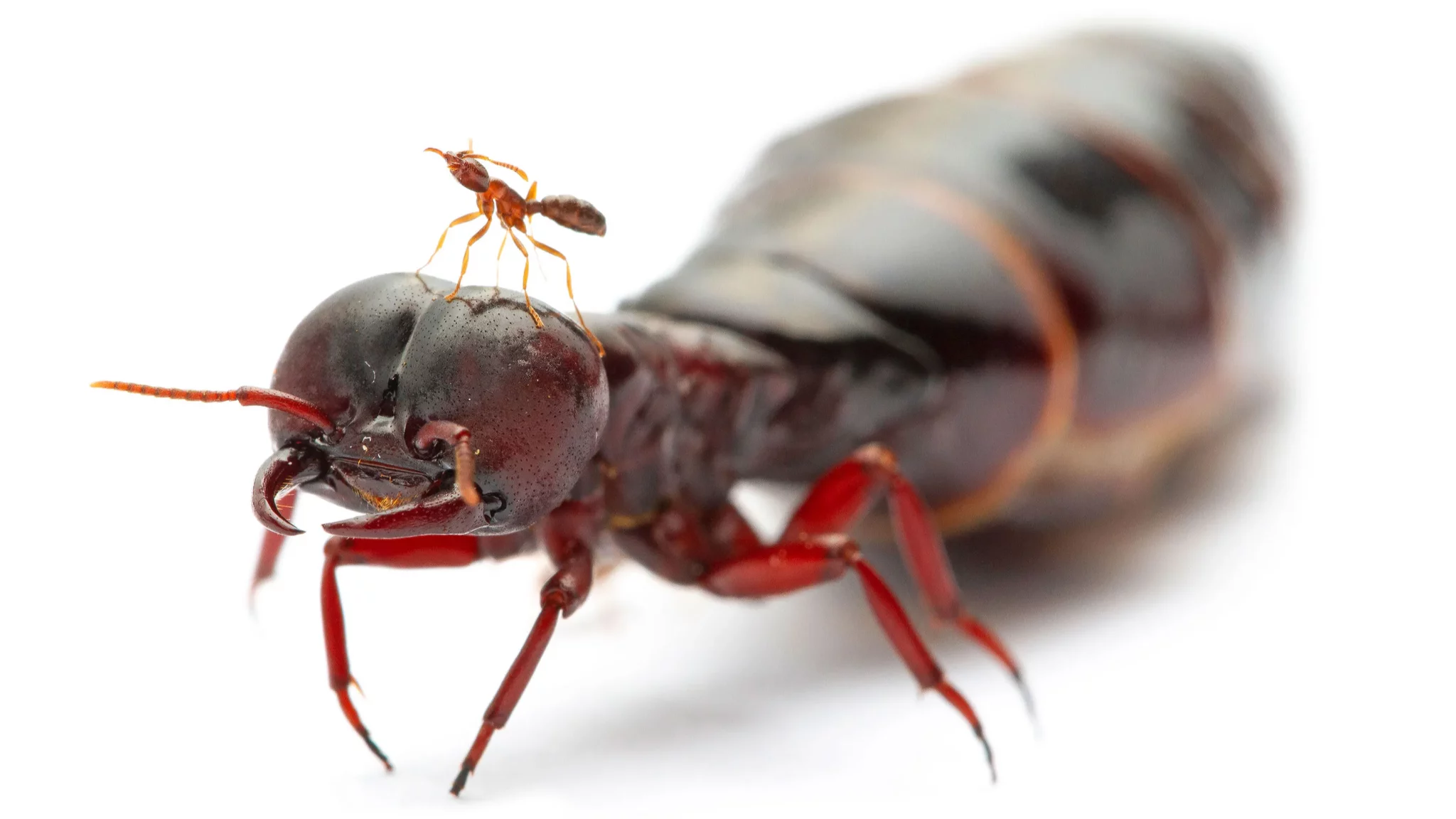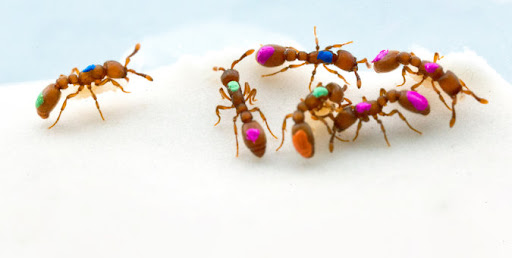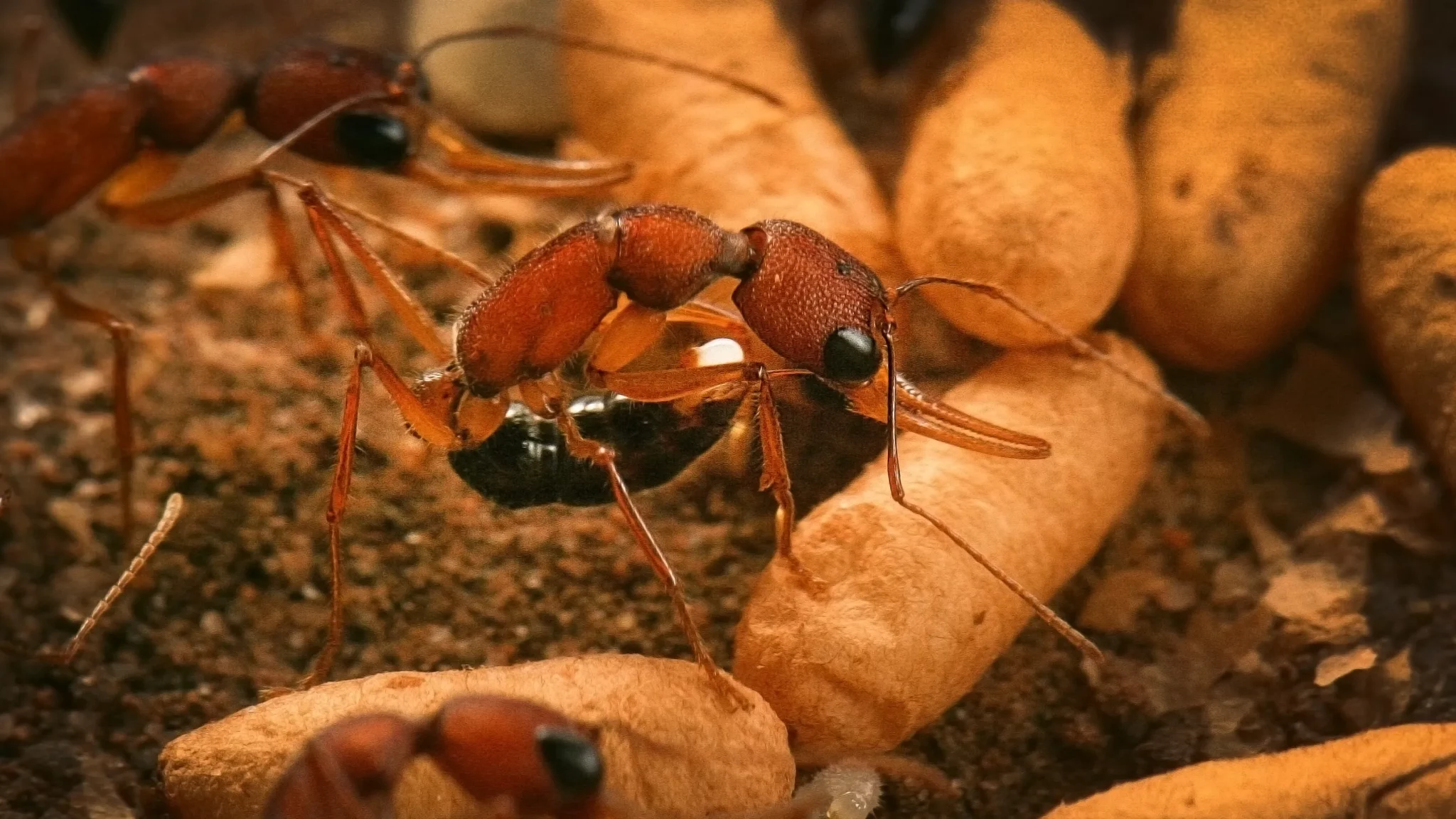created 2025-07-02, & modified, =this.modified
Why
Was reading about this after a researcher spoke of it at the lab, in a meeting regarding senescence and aging.
The queens of this ant genus have unusual reproductive behavior, with implications on lifespan the mechanism which they are investigating. Queens mate with tiny, winged haploid males (produced by the queens basically bags of sperm with wings) to form workers. This all happens during one night, in a big orgy where the queen mates with fifty males (all of which will die).
Workers live for months, haploid males a week, and virgin queens for years. If the Queen dies, there is no pheromone to repress the workers, and the workers duel in scent-based antennae jousting. The victors will undergo physiological changes to become reproducing caste of wingless pseudo-queen called, regrettably, a Gamergate.
What’s interesting with aging is that the Gamergate will now live 5x times as long. When a proper itinerant Queen wanders to the colony the Gamergate Queen becomes revertant, policed back and lifespan is reverted. This different reproductive strategy will make the colony functionally immortal, whereas most ant colonies will collapse if they lose their queens. So they investigated how such lifespan changes can be done.
Harpegnathos saltator
It so happens that I was having a discussion with some people about why Salmon has a silent L. Long story short, the name Salmon has etymological roots in “leaper” from salire (to leap) – which I picked up from knowing the Spanish. So, through this, I am wondering if Harpegnathos saltator the genus has similar roots as it is a jumping ant.
Ants Live 10 Times Longer by Altering Their Insulin Responses

For decades, studies have pointed to insulin and the biochemical signaling system that it activates as key regulators of aging. Insulin affects how body cells take up and use the sugar glucose, so it has a fundamental influence on the amount of energy available to cells for growth, reproduction and repair. In the process, it also regulates the generation of potentially harmful free radicals and other oxidizing molecules that are byproducts of metabolism. Many researchers suspect that this is why caloric restriction diets, which keep insulin levels low, seem to extend life span in many species.
When they injected worker ants with insulin, it activated their dormant ovaries and triggered egg development.
The gamergates’ behavior isn’t the only thing that changes, however: They develop functional ovaries and can lay eggs — and their life span extends to three or four years. Because gamergates aren’t as prolific as queens, it usually takes from three to five of them to replace the queen’s output of eggs. If a gamergate is introduced into a colony where a queen is living, the gamergate reverts to being a worker and her life span shortens.
Parasite that Lengthens Life
A tapeworm must spend part of its life inside acorn ants, which get their names from the nests they build inside individual acorns. When workers go out to forage, they sometimes will eat a tapeworm egg and get infected. To complete its lifecycle the tapeworm must be ingested by a woodpecker.
During the tapeworm’s larval stage, it pumps proteins into the ant’s equivalent of blood (hemolymph) that dramatic extends the life span of the worker.
The effected workers live five times as long as uninfected ones, and showed similar mortality rates as queens.
By lengthening the life of the worker by years, the tapeworm improves the odds that a woodpecker will eventually show up. The abundance of antioxidants in the hemolymph may also help tapeworm larvae live as long as their hosts do.
Mutant Ants Provide Insights into Social Interaction
Ants communicate through pheromones secreted chemicals that trigger responses. They can receive these signals due to proteins called odorant receptors on their antennae with each protein the right shape to bind to the correct receptor.

Ants genetically engineered to lack their “sense of smell” (through the genetic loss of the Orco protein, responsible for brain processing of the pheromones) became unable to communicate, forage, or compete to be a queen, as their antennae and brain circuits failed to fully develop. They wander from the nest, were unable to forage or bring back food and the mutant females stopped grooming male, a pre-mating behavior.
The current team successfully engineered the genetic loss of Orco protein, which resulted in ants that could no longer perform some, if not all, pheromone-based social interactions.
